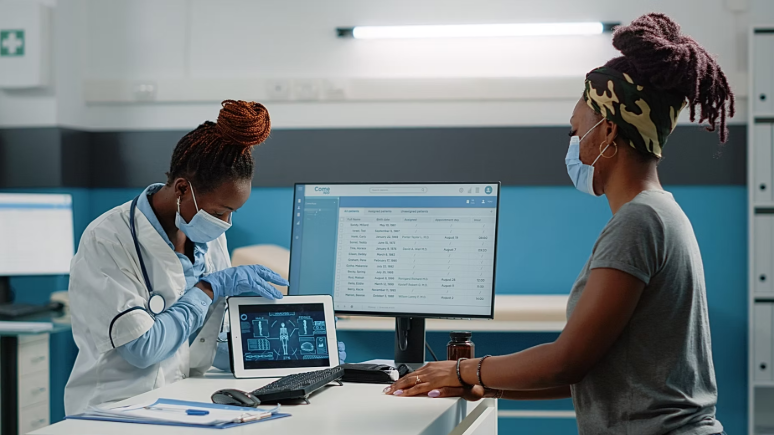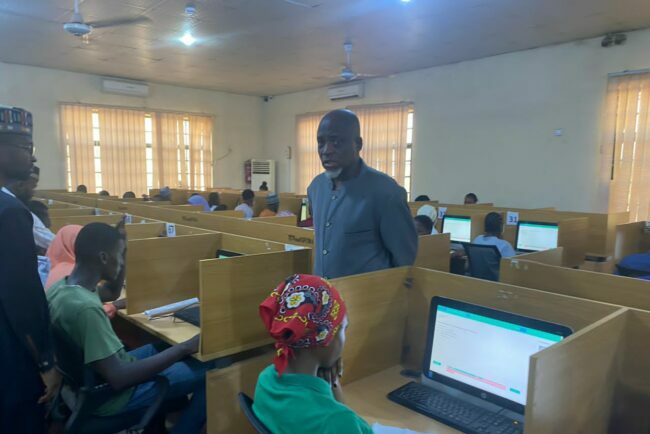BY KOLA ADEGOKE
Nigeria is racing to digitise its health system. On paper, the vision is impressive: electronic records in every hospital, a nationwide health information exchange, and a digital backbone to support universal health coverage. But step into most clinics, and the picture is far less polished—paper files piled high, power cuts disrupting care, and an internet connection that barely works.
The uncomfortable truth is this: no app, dashboard, or flashy pilot project can fix a system that hasn’t laid its foundations.
Why Basics Matter More Than Apps
Advertisement
Every digital health system depends on a few unglamorous but essential ingredients.
First, identity. Without a reliable way to identify patients, digital records are just disconnected fragments. Nigeria’s National Identity Number (NIN) program has made progress—but most clinics don’t use it for care, and many citizens still aren’t registered.
Second, addressability. Fewer than one in five Nigerian households can receive mail. In 2017, the national postal service adopted the “what3words” platform to aid in locating buildings. If we can’t reliably find people, how will we deliver medicines, track vaccinations, or follow up after surgery?
Advertisement
Third, population data. Nigeria hasn’t held a national census since 2006. Without an accurate denominator, health system planning is primarily based on guesswork.
Finally, infrastructure. Clinics need light and internet before they need dashboards and cloud systems. All too often, donor-funded computers sit idle when the generator breaks.
Lessons from South Africa and Ghana
South Africa’s experience demonstrates what happens when governments prioritise “plumbing” over “platforms”.
Advertisement
The country built a Master Patient Index linked to its national ID, developed a Master Facility List, and enforced national standards for data exchange. Its digital health systems may not be perfect, but they are functional, integrated, and scalable.
Ghana provides another lesson. Its “Ghana Card” covers most of the population and is actively used across banks, telecoms, and health services. It scaled up a telemedicine pilot from a single region to national coverage. Yet Ghana’s ongoing struggles with data silos and weak system coordination remind us that identity alone is not enough; strong governance and interoperability rules are equally vital.
Nigeria’s Risk: Castles in the Air
Nigeria’s new Digital in Health Initiative is ambitious. But unless it is grounded in reality, it risks repeating past mistakes: too many pilots, too many platforms, and too little connection between them.
Advertisement
Doctors and nurses may once again find themselves juggling paper files, while disconnected systems claim “progress” in glossy reports. The risk isn’t just wasted money—it’s wasted opportunity. Every naira spent on a shiny, nonfunctional tool is a naira not paid on electricity, staff, or vaccines.
What Needs to Change
Advertisement
We must resist the temptation to fund the visible while neglecting the essential. Donors, ministries, and policymakers should commit to funding the foundation first. That means:
Universal patient identity: Every citizen must be linked to a unique health ID that is used across all healthcare systems.
Advertisement
Functional addresses: Homes and facilities must be digitally findable and physically reachable.
Updated population data: A national census is long overdue.
Advertisement
Infrastructure first: Clinics require reliable electricity and broadband to transition to digital operations.
Rules and enforcement: Interoperability standards must be mandatory, not optional suggestions.
These priorities are not glamorous. They won’t generate headlines or viral press releases. But they are what will allow Nigeria’s digital health system to stand—not just for now, but for decades to come.
Truth Before Tools
Nigeria deserves digital health that works—not just on slides or in pilot projects, but in the daily reality of clinics, homes, and communities.
That will require honesty. It will require admitting that we are not there yet—and resisting the urge to celebrate progress before the groundwork is laid.
South Africa shows the value of investing in the basics. Ghana demonstrates that real progress is possible, but also warns of what happens when there is no systemwide coordination.
Now it’s Nigeria’s turn. We can build a system that works—but only if we start with the truth, not the tools.
Kola Adegoke, DrPH (Candidate), FACHE, CPHIMS, is a public health strategist and health informatics expert with over 20 years of experience across Africa and North America. He writes on digital health, health equity, and policy innovation.
Views expressed by contributors are strictly personal and not of TheCable.









